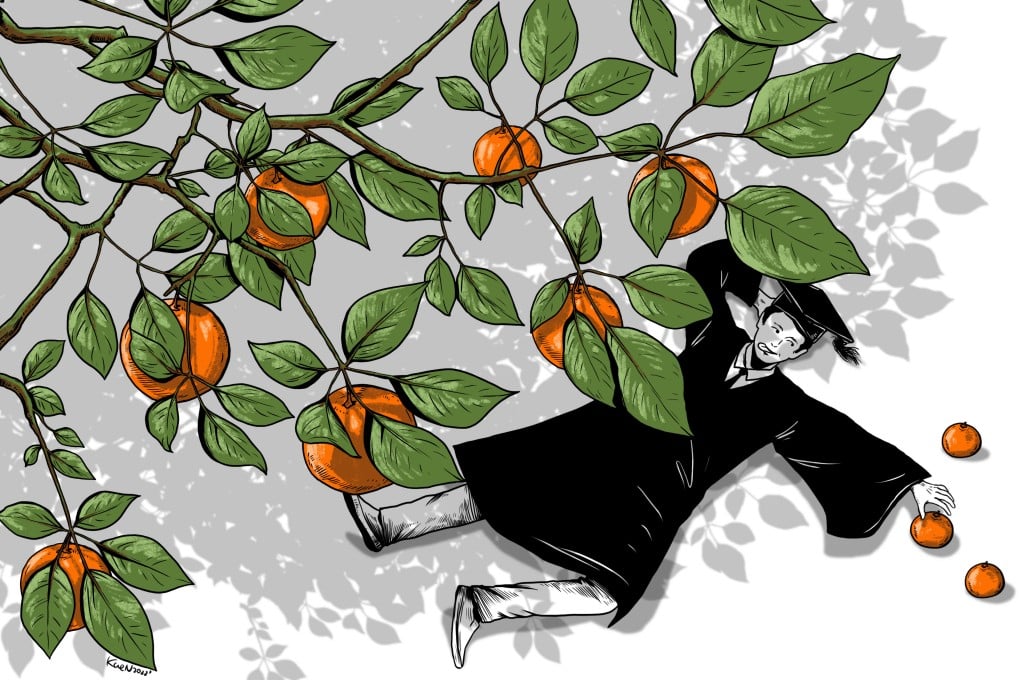For China’s elite graduates, career dreams take a back seat to stability in coronavirus-hit job market
- The economic uncertainty brought on by the coronavirus pandemic has made top Chinese graduates more risk averse in their job aspirations
- This year, a record 10.76 million college students are set to graduate, adding pressure to a job market economists are calling the most challenging yet

When Hermione Zhang graduated with a master’s degree in Beijing last year, the 25 year old had high hopes of working at a commercial bank or securities firm in one of China’s biggest cities.
But after her two-year programme was put on hold for nine months due to the pandemic – preventing her from networking or interning, which would have given her valuable face time with employers – she was forced to set her sights a little lower.
Eventually, after sitting through a gruelling 89 interviews in three months, she took an offer at a small rural bank near her hometown in the central province of Shanxi.
“If it wasn’t for the pandemic, I would have stayed in Beijing, even just doing internships,” said Zhang.
The pandemic has changed the way I make my career decisions
“The pandemic has changed the way I make my career decisions. In a difficult time, everyone wants to land a stable job. In the face of uncertainties, the tendency to avoid risks and unfavourable scenarios has surpassed the urge to be adventurous and enterprising.”
Amid a state of economic flux three years into the coronavirus pandemic, many young Chinese from elite universities are setting aside career dreams for stability, as a record number of graduates enter a job market clouded with uncertainty.